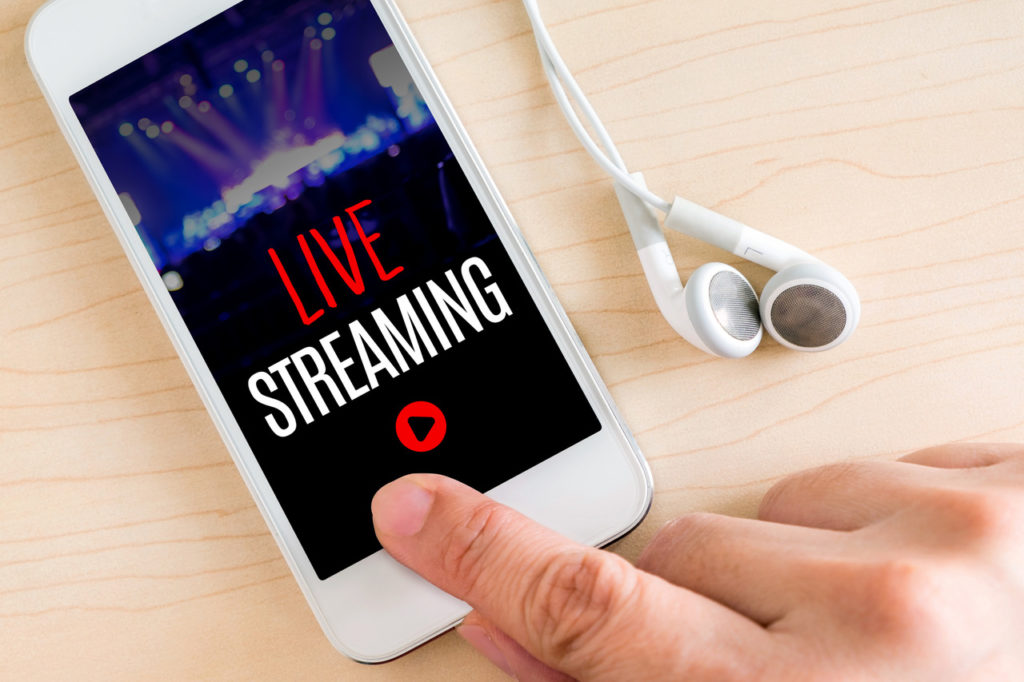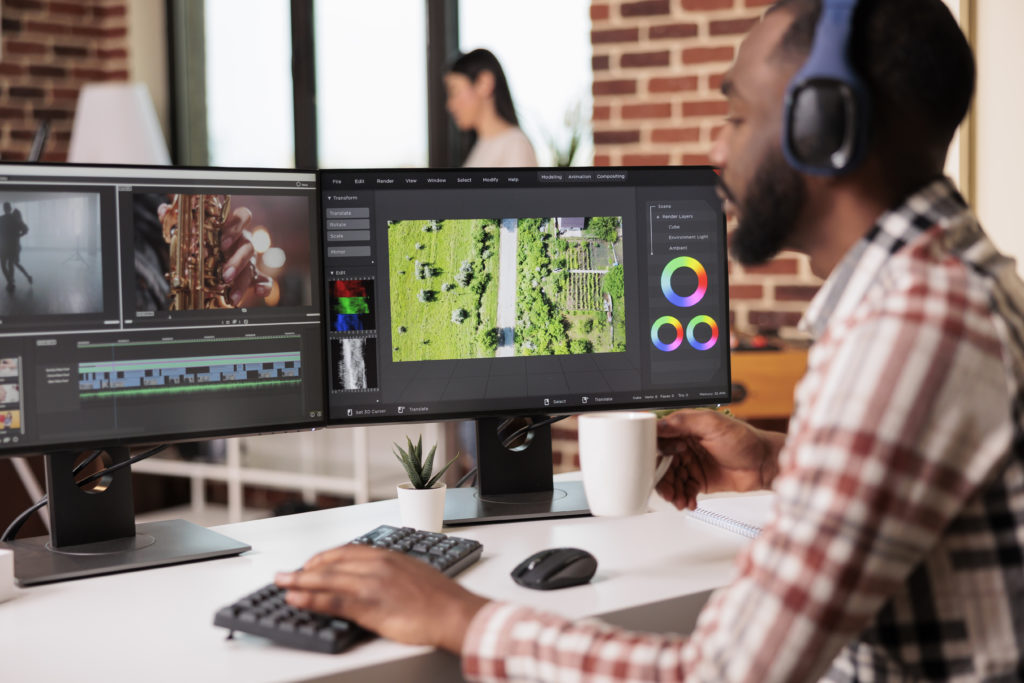
Is Live Streaming a Concert or Event a Viable Source of Revenue?
To stream or not to stream?
Live-streaming has become a hugely popular means for audiences to receive content, with reports showing that 42% of the U.S. population has live-streamed online content — significantly more than the 25% in 2017. What does this mean for concert promoters and venue owners? Is live-streaming a viable source of revenue, and how?
The short answer: yes, and in multiple ways. Hear what three experts in concert live-streaming have to say on the topic.
Increases brand awareness and turn casual listeners into ticket-buying fans
“Everything that we’ve seen, all the data we’ve looked at, points to an increase in awareness. [Live-streaming has] been a key function of marketing, to drive awareness about our brands,” states Jonathan Healey, VP of Marketing and Digital Strategy at Dayglo Ventures. Live-streaming becomes the first step in getting somebody into the room, first virtually, and then physically. Healey describes the grand opening of Brooklyn Bowl Nashville, whose doors open in March 2020. The first nights of shows will be live-streamed so that people from all over can view the opening nights of Brooklyn Bowl Nashville and see what the energy and experience is like at the brand new, packed venue. And as brand awareness rises, so do ticket sales.
People who come across a brand via live-streaming not only gain awareness of that brand — they’re very likely to come back as ticket-buyers. 67% of audiences who watched a livestream purchased a ticket to a similar event the next time it occurred. A livestream provides an “in” for the casual listener, who can then see a band’s great performance for the first time, or see what the experience is like at a certain venue. And, two times out of three, they’ll like what they see and pay to return in person.
Creation of valuable marketing tools
A livestream video with top-level visual and audio quality serves a purpose long after the concert is over. “It’s just going to generate content, and [venues or artists] can use that everywhere” says PressureDrop TV Producer Anne Cook. Videos can live in their entirety on a venue or artist’s site, be cut into clips and shared as smaller social media posts or as part of a promo video — the opportunities are endless.
The existence of the video can then help build an online community, points out Jessi Olsen, Director of Growth at Big Room TV. “Artists tagging venues in social media posts, saying how much fun they had in that city…that’s a valuable thing” she says. These posts are valuable in building an artistic community and, for venue owners, exposing the venue to the artists’ wider social media following.
Attract new audiences who might not otherwise attend the show for various reasons
Live-streaming audiences and concert attendees are a “separate but compatible ecosystem” says Cook. “It’s like a Venn Diagram” she describes. “It sort of intersects, and it sort of doesn’t.” Many groups of people cannot attend the shows but can still be sources of income by streaming in.
This includes casual listeners who are curious enough to stream in (and, as discussed before, will likely become ticket buyers). These groups also include young fans who do not meet the age restrictions of a venue but who still want to view the show and interact with other fans, or sick, injured, or disabled fans who still want to watch their favorite artists. Fans who do not live in the concert location are another popular group of live-streamers. Live-streaming becomes an avenue for an entirely separate group of listeners — and sources of revenue — to join into the experience at a certain concert.
Live-streaming does not decrease in-concert attendance — quite the opposite
Is there any chance that live-streaming could result in a decrease in ticket sales due to audience members choosing to watch from home?
The answer we received was unanimous: absolutely not.
“I work on both sides. I’m with the talent buyers and in ticket sales. I also work in live-streaming. It’s not hurting our ticket sales at all. It’s doing the exact opposite,” states Healey. “We continue to do it because it’s the best marketing tool that we have.” Olsen and Cook expressed similar sentiments, stating that the live concert experience is something that live-streaming cannot recreate. People want to go out and experience live music. They want to be in the crowd or the mosh pit, shouting the lyrics of their favorite songs with other people who love the same music they do. That need for community and in-person interaction has not changed, and likely will not
Pro Tips
So, you’ve decided to implement live-streaming as part of your venue or concert tour marketing strategy. What can you do to make sure it runs as smoothly as possible and gives you the best ROI?
Olsen’s biggest piece of advice was “don’t overthink it.” “The content marketing game can feel overwhelming,” she says, “but it does not have to be.” She urges venue owners and promoters to not be afraid of the digital audience, as they are a huge group who will not cut into ticket sales.
Cook urges venues and artists to keep content creation in mind, and to come up with ways to utilize the content generated from each show. She also suggests that venues consider offering exclusive content in the livestream, such as a post-show interview to entice people to stream in.
Healey recommended that venues and promoters, for starters, have right equipment in the room, including cameras, infrastructure, staff, and broadband internet. He also recommends having a so-called “dedicated talent buyer” to book all livestreams by looking at all the upcoming shows, deciding which ones to stream, and then doing outreach to book that. And then of course, once all details are in place, “market it, so people know to stream in.”
Live-streaming has proven its worth as a valuable revenue source, but not simply by earning a venue a few dollars ever time someone streams in. Its proven track record for turning streams into future ticket sales, functioning as a valuable tool for brand awareness, and opening the door to a virtually limitless digital audience establishes it as a vital tool for the marketing and revenue of a venue or artist.

Matt Ford is the founder and CEO of Prism.fm, an Austin-based software company revolutionizing live music event management. With a background in entrepreneurship and a degree from the University of Wisconsin-Madison School of Business, Ford combined his self-taught coding skills with firsthand experience as a concert promoter to address the inefficiencies he observed in the industry. In 2018, he launched Prism.fm, an all-in-one platform designed to streamline operations for venues, promoters, and agencies by replacing cumbersome spreadsheets with integrated tools for booking, financial tracking, and contract management. Under his leadership, Prism.fm has grown significantly, achieving $3 million in annual recurring revenue post-COVID and securing over $15 million in funding . Ford’s commitment to building user-centric solutions has positioned Prism.fm as a trusted partner for over 1,500 venues and promoters worldwide.



